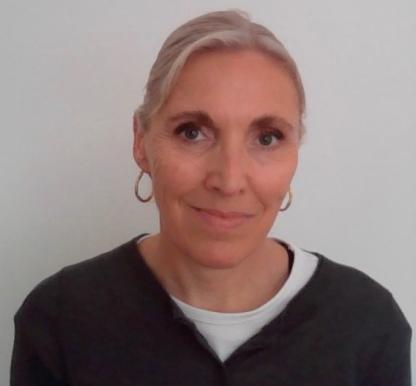I am delighted to have joined the Mental Health Foundation as Programme Lead for the Families, Children and Young People's (FCYP) programme.
I hope to be able to draw on my experience in managing Child and Adolescent Mental Health Services (CAMHS), previous project management experience and my ongoing practice as an adult psychotherapist and clinical supervisor, to build on the success of existing FCYP projects and to develop new areas of work.
The time is now
Now is a particularly exciting time to be joining the Foundation because of its commitment to prevention and the leadership role it continues to play in this field. Most importantly, effective prevention avoids the considerable distress that mental ill-health causes children and their families and ensures that young people can plan for their future with hope, not fear.
With 1 in 10 school-age children currently having a diagnosable mental health problem, the need for an effective prevention strategy is greater than ever. As well as alleviating distress, it would reduce pressure on overstretched services and be a positive investment in the future mental health of the nation.
We know that half of all adult mental health problems start by the age of 14, and 75% by the age of 18. It’s hard to think of a more compelling case for prioritising prevention!
Our programmes
I am keen to work with colleagues across the Foundation to build on the success of existing projects. For example, the Peer Education Project (PEP) has gone from strength to strength, with over 8,000 students taking part in 2017/18. We are considering whether the model might be further expanded as well as extended to other parts of the school community, such as parents and teachers, or adapted for primary schools.
Similar plans are underway to build on the success of the Young Mums Together project, for example devising an intervention to support young men approaching fatherhood, as well as some innovative ideas for helping families during the crucial perinatal period.
As well as the more 'universal' prevention approaches (designed for all young people) such as PEP, I want to ensure that we think about groups of children who may be particularly vulnerable to mental health difficulties. For example, there is a growing awareness that many young people who are drawn towards gangs and/or youth violence also share risk factors for poor mental health, such as adverse childhood experiences, social exclusion and living in areas of high deprivation.
Similarly, we know that groups such as young refugees and asylum seekers and looked-after children are at increased risk and yet not always able to access the support they need early enough. I’m keen to form links with individuals and organisations who are working with these populations to devise effective and appropriate prevention programmes.
I am really excited about joining the Mental Health Foundation and leading its families, children and young people programmes in England which grows ever stronger. I look forward to keeping you updated.
We need your help
With most mental health problems starting at a young age, our work on preventing mental health problems in children, young peole and families is more important than ever. We can't do all this work without your support. Please consider a donation today.
Donate nowProgrammes for families, children and young people
Forming a family and parenting is an important part of life, with many changes taking place. Both mothers’ and fathers’ mental health may be affected during this transition, which may influence their child’s mental health.
A-Z Topic: Children and young people
Mental health problems affect around one in six children. They include depression, anxiety and conduct disorder (a type of behavioural problem), and are often a direct response to what is happening in their lives.
